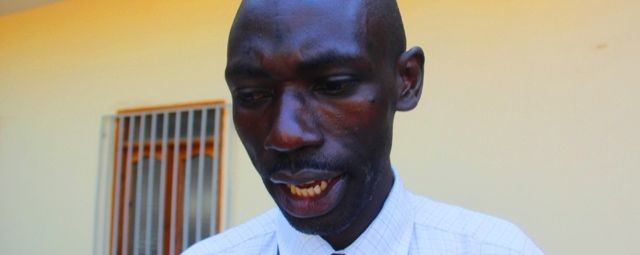South Sudanese activist and director of the Community Empowerment for Progress Organization (CEPO) Edmund Yakani says that security harassment of journalists, activists and human rights workers is bad for the image of South Sudan and indicates that there is “something to hide.”
Speaking to Radio Tamazuj on Thursday, Yakani said the situation of the journalists is getting worse daily, and linked the crackdown also to the shooting last month of the Civil Society Alliance chairperson and the shutdown of Radio Bakhita.
“It is tarnishing the image of the country to the outside world, and it is sending a signal that some people somewhere are not happy when the truth is spoken out,” he said.
“A radio station has been closed, an activist has missed an assassination attempt, human rights officers are getting threats and journalists are receiving continuous threats – it is a challenging moment that needs urgently to be addressed,” Yakani said.
Human Rights Watch and Amnesty International have warned that the press crackdown is part of an effort to ‘cover up’ mass killings of members of a minority ethnic group.
All major independent media houses in the South Sudanese capital have been raided by government security forces. Some journalists have been detained or expelled, and others have been threatened verbally or physically.
Journalists have been regularly denied access to hospitals, morgues, IDP camps, and mass grave sites. They have been warned not to quote opposition figures or rebel spokesmen who are in exile, nor to cover debate on controversial political issues such as federalism.
At least three Christian radio stations have been threatened in July and August, including Bakhita FM in Juba, Weer Bei FM in Wanyjok and Spirit FM in Yei.
“The situation of the journalists is getting worse and worse and it is worsening daily… the report by Human Rights Watch has proved how hard the situation is. As you can see what is going on with the Bakhita Radio is alarming where journalists are arrested and the station is closed”, the activist said.
Yakani called for constructive engagement between media and the government in order to prevent the image of the country from worsening.
“Our call as activists is that we need to call our government to look into the issues having legislation that will create space for the media to work because media is the basic tool of giving out the information to the citizens.”
‘Peace talks personalized by warring parties’
Yakani also commented on the ongoing peace talks, saying that both political leaders of the two warring parties are not interested to peace, but rather they are just there to negotiate for their own political survival.
The delegation representing President Salva Kiir at the peace talks in Addis Ababa last week withdrew from the negotiations.
“The negotiation is too much personalized by those who are engaged in the negotiations – they have personalized it like it is their own personal problem towards each other,” Yakani said,
Yakani, who was one of the members representing civil society at the peace talks, said that the warring parties in Addis Ababa are just playing political games which are not in the public interest of solving the crisis.
“My observation in the peace talks is that both parties are not ready to talk substantive issues that the country is facing today, like issues of democracy and good governance.
Yakani says that he supports the UN Security Council to impose sanctions on both warring parties, but not targeting junior leaders. He said the Security Council should target the main people who are obstacles to bringing peace to the country.




